
Missoula County Public Schools trains teachers in “interrupting oppression”; shifts to “gender identity” for participation in school programs, activities
Incidents
Missoula County Public Schools has a policy titled “Equal Education, Nondiscrimination and Sex Equity.” The policy states: “Equal educational opportunities shall be available for all students without regard to race, color, national origin, sex, religion, creed, physical or mental disability, economic or social conditions, sexual orientation, gender identity, gender nonconformity, or actual or potential marital or parental status.” The policy further states that “no student shall, on the basis of that student’s gender identity or gender nonconformity, be denied equal access to programs, activities, services, or benefits or be limited in the exercise of any right, privilege, or advantage, or denied equal access to educational or extracurricular programs and activities.”
The school district also has a policy labeled “Selection, Adoption, and Removal of Textbooks and Instructional Materials.” The policy states that “textbooks shall be selected by a curriculum committee representing the various staff who will likely be using the text.” However, this policy appears to state that the identities of people must be considered when choosing “textbooks and instructional materials.” The policy states that textbooks should “be representative of the many religious, ethnic, and cultural groups and their contributions to our American heritage” and should “depict in an accurate and unbiased way the cultural diversity and pluralistic nature of American society.”
On June 3, 2020, the school district released a statement from the superintendent. The superintendent explains in the statement that the school district is “a place where we value human diversity, oppose discrimination, and where we are willing to listen, learn, and collaborate to improve the human condition for all of our students and families.” He further explains:
We share our commitment with the city, county and University of Montana to make Missoula an inclusive, welcoming and supportive community that values and promotes diversity in all its forms. As educators, we each have an important role to play as advocates for equity. We can commit to listening and learning to impact real change in our practices. We can also commit to acting in solidarity against racism and injustice, because we have seen the tremendous harm created by discrimination, in all its forms. As a school district, we play a critical role in our community and I believe it is important to share our commitment to creating a safe environment for all.
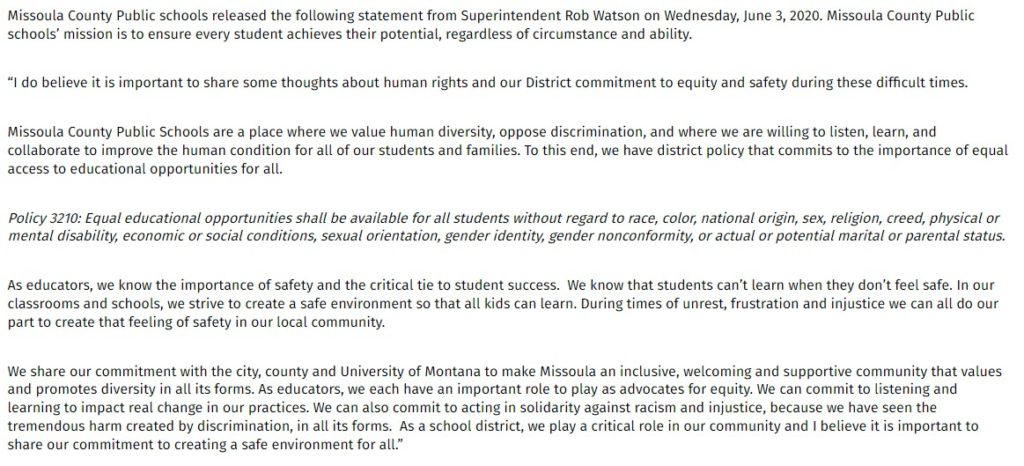
The school district also has an equity group called “IVALUE.” This stands for “Inclusion Validation Action Learning Understanding Equity.” The school district states: “In the 2019-20 school year, Missoula County Public Schools formed the IVALUE group with the intention of creating an inclusive MCPS community.” The school district further explains that “members included professionals in the field of anti-bias and racial justice work and many more were recruited to represent the MCPS community.” The group made the following proposals for changes to the school district:
- All future work around diversity, equity and inclusion within MCPS should have a primary focus of centering the experience and growing the leadership of specific groups within the District including: BIPOC (Black Indigenous People of Color), members of the LGBTQIA+ community, members of various religious communities, individuals who speak a language other than English or who come from other countries, and individuals who experience economic, physical or developmental challenges.
- A leadership team should be established that includes those with experience and expertise in anti-racism, diversity, equity, and inclusion training and work.
- The other members of the I VALUE working group who are invested in the process but need additional training would create a cohort of allies and supporters. The leadership team could delegate specific tasks to this group, and this group would be among the first cohorts to receive training. They would act as leaders within the MCPS community in implementing social change.
- Identify and take action on known issues while concurrently planning, training and researching.
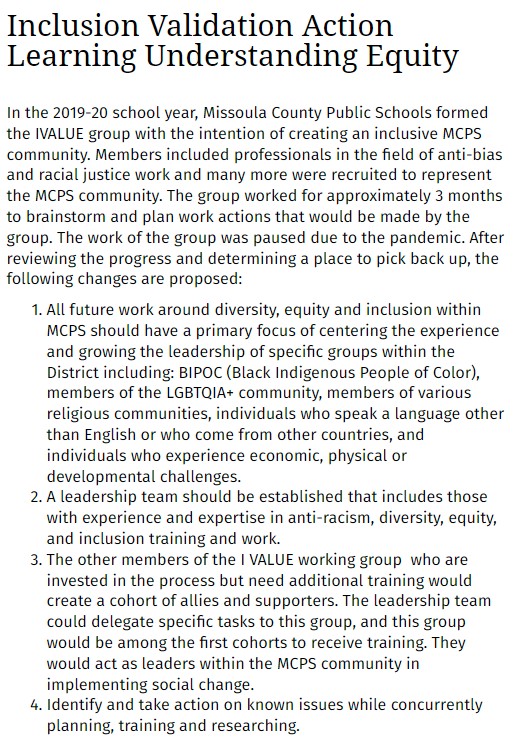
The IVALUE group plans to implement training for all of the school district’s staff and has a timeline to carry the plan out. The group states on the school district’s website: “The IVALUE foundational series training covers individual identity and perspectives, creating culturally safe communities, interrupting oppression, and making a plan for institutional strategies for change. This 8-12 hour series will be offered each school year until all MCPS staff have been trained.”
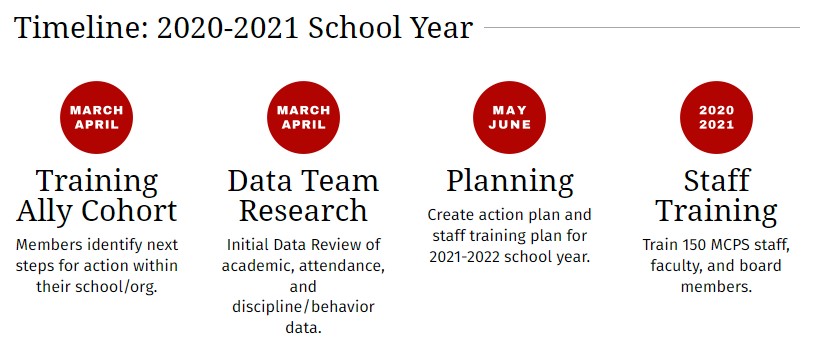

On the IVALUE resources page, the group promotes numerous equity resources that teachers can use. One resource is titled “Identifying and Responding to Bias Incidents” from the organization Learning for Justice. The Learning for Justice resource states: “A bias incident is conduct, speech or expression motivated, in whole or in part, by bias or prejudice. It differs from a hate crime in that no criminal activity is involved.”
Learning for Justice has pushed for its “Social Justice Standards” to be adopted in schools throughout the country. The document for these standards includes goals to achieve for students. One goal is that “students will develop language and historical and cultural knowledge that affirm and accurately describe their membership in multiple identity groups.” Another goal appears to outright state that the purpose of the “Social Justice Standards” is to turn students into political activists: “Students will make principled decisions about when and how to take a stand against bias and injustice in their everyday lives and will do so despite negative peer or group pressure.”
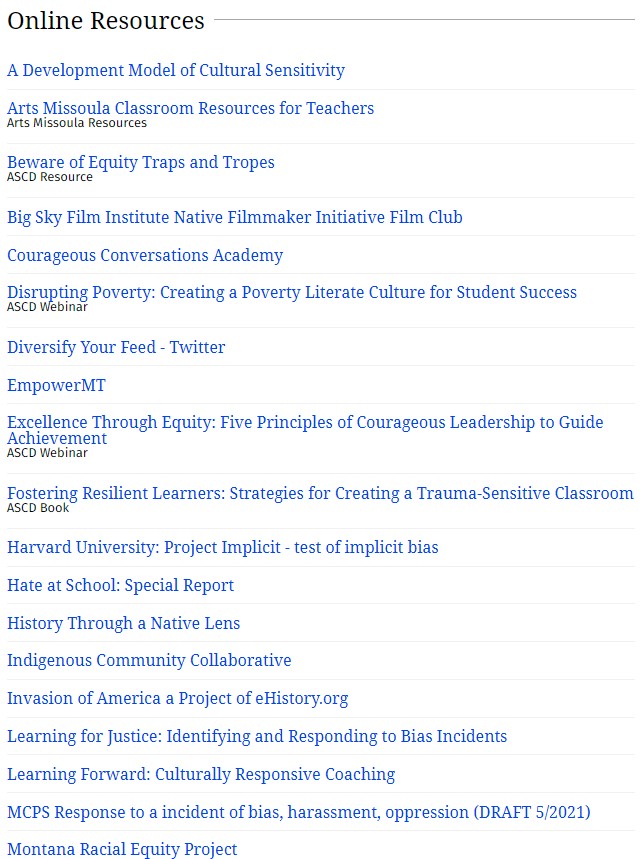
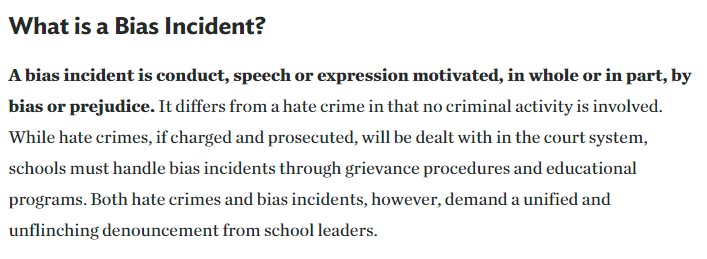
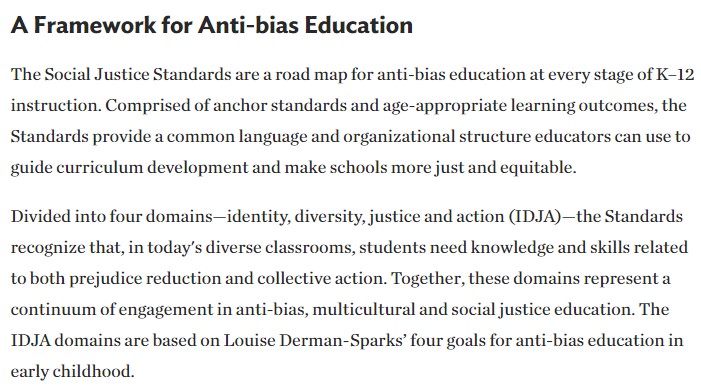
Another resource the IVALUE group promotes is an organization called “The Montana Racial Equity Project.” The Montana Racial Equity Project states on it website that the organization “strives to achieve equity, racial justice, and positive transformational change for Montana’s historically marginalized, disenfranchised, and oppressed peoples in the personal, social, systemic, and structural arenas.” The group has a list of “racial equity and justice projects” also on its website. The first topic on the list is “classroom dialogues (elementary to graduate school).”
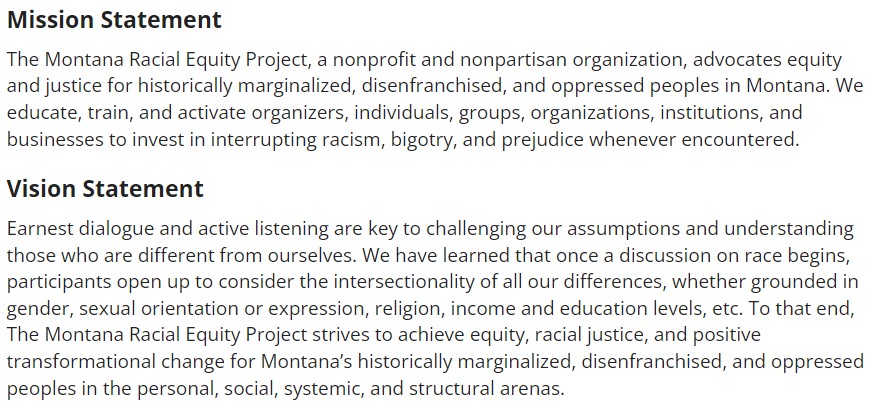

The IVALUE group’s resource page also includes a list of political books that teachers can read. Books on this list include Me and White Supremacy, How to Be an Antiracist, Rethinking Columbus, and White Fragility.
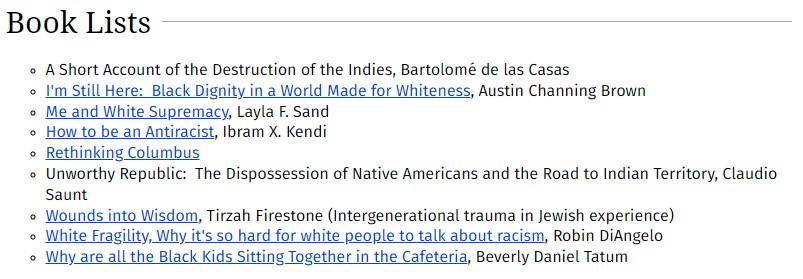
The IVALUE group also has a newsletter. In the February 2022 issue, the group states that “we recognize that our community needs to learn skills in order to be aware of and interrupt bias related to race, national origin, sex, gender identity, sexual orientation, religion, creed, citizenship status, ability, economic or social conditions, or marital or parental status.” The newsletter also promotes the “Montana Racial Equity Project Book Club.” The newsletter states that “reading selections include mainly nonfiction titles about social justice, equity, and issues affecting historically marginalized, disenfranchised, and oppressed individuals or communities.”
This newsletter additionally promotes and encourages students to “attend UM Black Student Union’s 2022, 5th Annual Black Solidarity Summit.” The IVALUE group announces in the newsletter four more training sessions for teachers that include the topics of “Individual Identity and Perspectives, Creating Culturally Safe Community, Interrupting Oppression, and Making a Plan.”
The newsletter also promotes resources for teachers from the Anti-Defamation League (ADL). The newsletter states: “There are several terrific resources through the ADL (Anti-Defamation League) including lesson plans and learning opportunities.” The ADL is a known political organization that supports and advocates for left-wing causes. The organization has pushed its “No Place for Hate” project in America’s schools.
In a document for the “No Place for Hate” project, the ADL states that “although learning how to demonstrate kindness is an important part of a child’s psychological and social development, ADL highly encourages schools to move beyond kindness to social justice.” One section of the document is titled “Let’s Get It Right: Using Correct Pronouns and Names.” In this section, the document encourages teachers to use the preferred pronouns of students:
From an early age, many were taught that pronouns should follow specific rules along the gender binary: ‘she, her and hers’ for girls and women and ‘he, him and his’ for boys and men. However, as our society has progressed in understanding gender identity, our language must also be updated. It should be accurate and convey understanding and respect for all people, especially for those who are transgender, gender non-conforming and non-binary.
The ADL’s document then encourages teachers to implement “LGBTQ” topics into classroom discussions:
Using the lesson below, lead a discussion about the ways in which LGBTQ people, events and issues have been less visible or made invisible in mainstream accounts of history. Explore the impact of invisibility on people and how different groups have been historically marginalized in society. Then, engage students in a discussion about people who may feel invisible in their school. Be sure to focus on general identity characteristics (e.g., sexual orientation, immigration status, gender identity, etc.) rather than specific individuals. Based on this discussion, ask students to sign up to be interviewed if they feel like an aspect of their identity needs more visibility.
The “No Place for Hate” document also features a “Pyramid of Hate.” The ADL uses the document to explain that “while every biased attitude or act does not lead to genocide, each genocide has been built on the acceptance of attitudes and actions described at the lower levels of the Pyramid.” The pyramid intends to show that actions such as using “non-inclusive language” and committing “microaggressions” will possibly lead to “the act or intent to deliberately and systematically annihilate an entire people.”
On September 28, 2021, the Board of Trustees approved the school district’s new strategic plan. The strategic plan states that a core value of the school district is equity. The strategic plan explains: “We value providing opportunities and a high quality, comprehensive education where each student has the necessary supports and resources to meet their needs and circumstances, including but not limited to, race, socioeconomic status or other individual circumstances.” A goal for the strategic plan is “to inspire locally and globally minded citizens through a culture of inclusion, equity, leadership and excellence.” The strategic plan also states that a goal is to ensure “our school environment is inclusive, safe and where students, staff, families and visitors feel a sense of belonging.” This includes:
- We have successfully implemented restorative and social justice strategies that support the needs of our students and their families.
- We have successfully transformed discipline issues into learning opportunities for our students, through conflict resolution and other strategies.
- We provide education and other supports to students and staff to make healthy decisions regarding their physical, mental, behavioral social and emotional well-being.
- We have successfully implemented trauma-informed strategies that support our students, families, and staff.
The strategic plan also appears to state that the school district will work to turn students into political activists. One issue the strategic plan labels as facing the school district is “politics and social values.” The strategic plan then lists the areas to focus on with students:
- We anticipate continue polarization and the need for respect of viewpoints and opinions to others.
- We anticipate that politics and social values will continue to impact voting outcomes and funding for public education.
- We anticipate that it will be vital for our youth to be engaged in civics, politics and issues that will impact them during their lives.
The school district has a document online titled “Newcomer Resources for Teachers.” The document supports “high quality, culturally responsive classroom instruction and strategies that support all learners.” The document also praises “culturally responsive teaching” by stating that the method of teaching is where “opportunities are created for the target student to relate new learning to background experiences, home language, and culture.” The phrase “culturally responsive teaching” is often used to describe a method of teaching that includes the race and ethnicity of students as part of the lessons taught in classrooms.
The document also includes a “Cultural Competence Self-Assessment Checklist for Teachers.” The checklist includes statements for teachers to grade themselves with “A,” “B,” or “C.” Statements for teachers to grade themselves by include:
- I display pictures, posters and other materials that reflect the cultures and ethnic backgrounds of children and families at my school.
- I insure that magazines, books, and other printed materials in my classroom are of interest to and reflect the different cultures of children and families at my school.
- When using videos, films or other media resources, I insure that they reflect the cultures of children and families at my school.
- When using food in my classroom, I insure to include foods that are accepted in the cultural and ethnic backgrounds of children and families.
- I insure that toys and other play accessories are representative of the various cultural and ethnic groups within the local community and the society in general.
- I discourage children from using racial and ethnic slurs by helping them understand that certain words can hurt others.
- I screen books, movies, and other media resources for negative cultural, ethnic, or racial stereotypes before sharing them with children.
- I intervene in an appropriate manner when I observe other staff or parents engaging in behaviors that show cultural insensitivity, bias or prejudice.
- Before visiting or providing services in the home setting, I seek information on acceptable behaviors, courtesies, customs and expectations that are unique to families of specific cultures and ethnic groups.
- I advocate for the review of my school’s mission statement, goals, policies, and procedures to insure that they incorporate principles and practices that promote cultural diversity and cultural competence.
The school district’s website has a page for school counselors. This page features resources promoting Social Emotional Learning (SEL) from the organizations CASEL and Second Step. CASEL is an organization that works with school districts throughout the country to use SEL in an effort to push “equity” and “social justice” in education. On July 1, 2020, CASEL promoted “racial justice” in discussing its roadmap for reopening schools during the COVID-19 pandemic. In explaining the importance of the reopening process for schools, the organization stated that “this moment called on all members of our school communities to deepen our social and emotional competencies and create equitable learning environments where all students and adults process, heal, and thrive.” CASEL also published a video in 2020 titled “SEL As a Lever for Equity and Social Justice.”
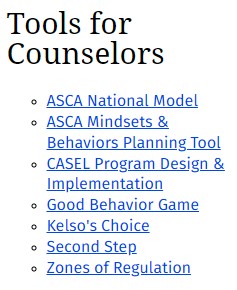
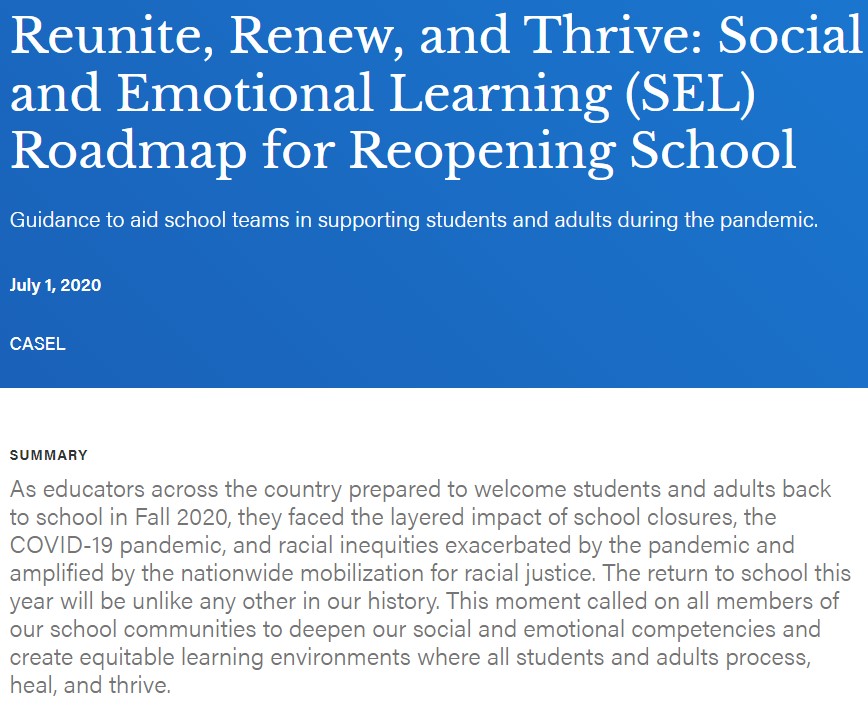
Second Step additionally states on its website that the organization is “committed to addressing racial injustice and helping you drive real change in your school communities.” The organization also provides resources for educators to implement equity into the classroom. Two of the resources that Second Step offers are called “Talking to Kids About Racial Identity” and “Starting in the Classroom.”
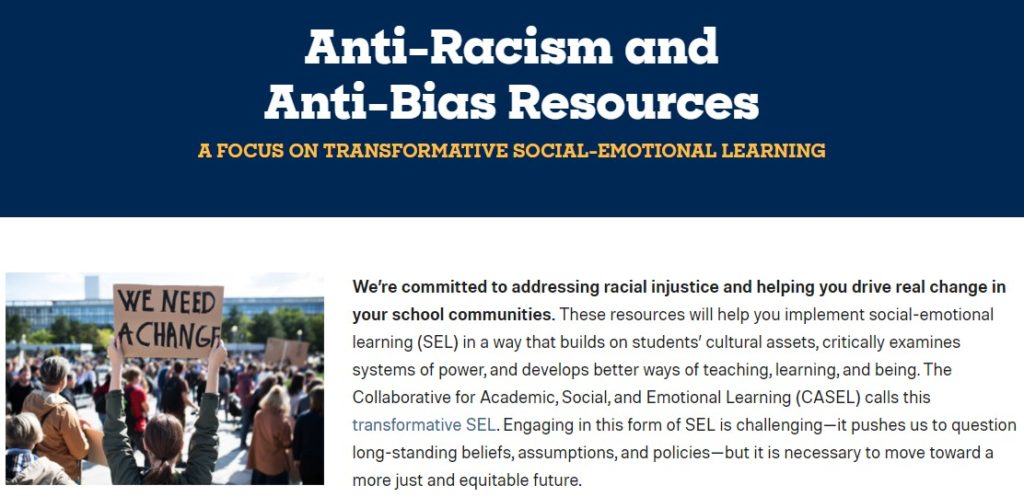
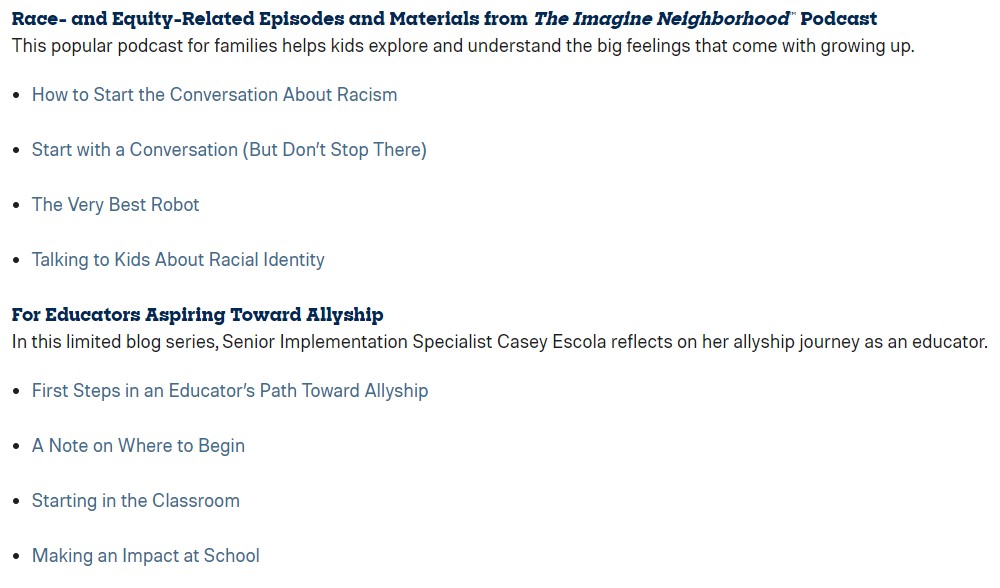
Stay Informed
